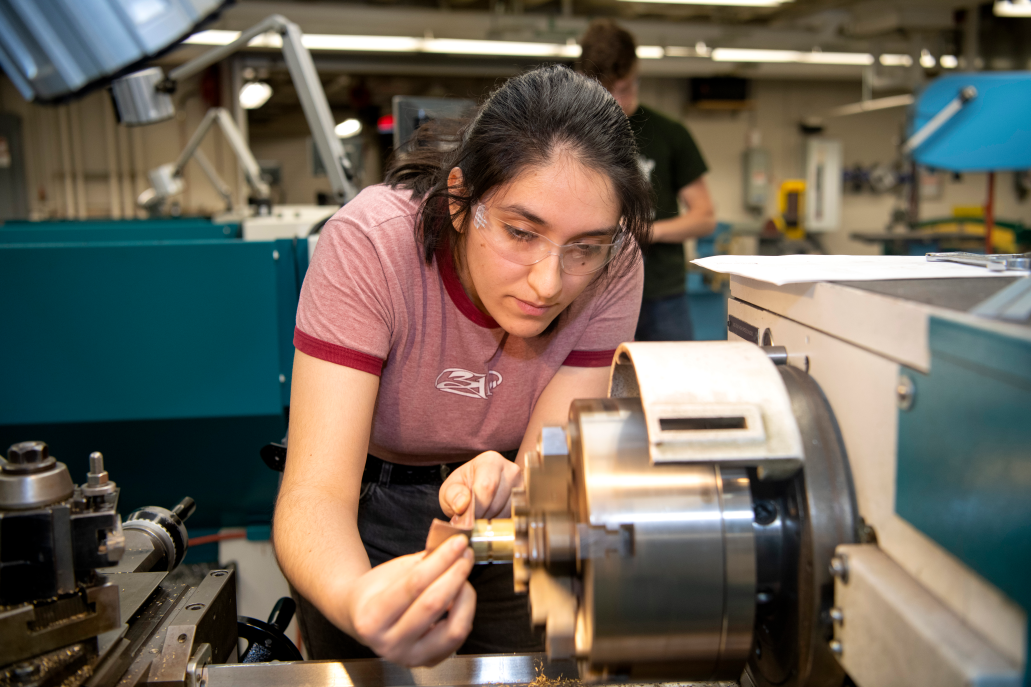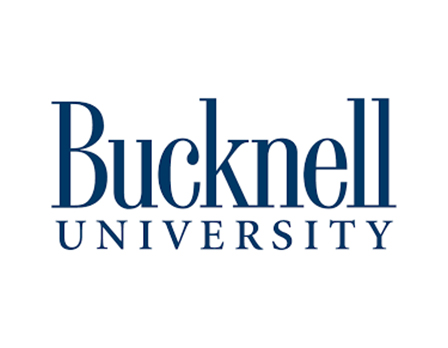Do you crave an education that ignites your passions and equips you with the tools you need to thrive in an ever-changing world? Bucknell University in Lewisburg, Pennsylvania, with its unique blend of liberal arts and experiential-learning programs, has a vibrant environment where students can cultivate their intellectual curiosity and develop the skills needed for success in a complex world.
Bucknell recognizes that students are multifaceted individuals with diverse interests. Unlike institutions that confine you to one path, Bucknell empowers you to explore and connect your passions through its more than 60 majors and 70 minors across three prestigious colleges: Arts & Sciences, Engineering, and the Freeman College of Management. You can be a musician who drives social justice, a biomedical engineer who’s researching ways to make playgrounds safer or the founder of a new company — the possibilities are seemingly endless.
Broaden your perspective
Bucknell shatters the traditional academic mold by encouraging students to explore beyond their chosen major. Bucknell’s liberal arts foundation offers students an opportunity to engage with multiple disciplines, giving them a multifaceted understanding of complex topics and a unique lens through which to view the world. For example, Bucknell offers Integrated Perspectives courses where professors from different subjects team up to teach a class. This approach helps students explore complicated issues from various angles and exposes students to diverse viewpoints and perspectives.

At Bucknell University, students have the opportunity to conduct hands-on research that enables them to learn by doing. Source: Bucknell University
Gain hands-on experience
At Bucknell, learning doesn’t just happen via textbooks and lectures; Bucknell students learn by doing. Bucknell has many accessible programs and research opportunities that enable students to contribute meaningful solutions to real-world problems.
Unlike many universities where research opportunities are reserved for graduate students, Bucknell prioritizes undergraduate involvement. From the moment you step onto campus, you’ll have access to cutting-edge labs, research centers and performance spaces, enabling you to engage in experimentation and discovery. This hands-on approach cultivates critical thinking, problem-solving skills and a spirit of innovation that sets Bucknell students apart.
Just ask Amanda Agambire. In 2020, Agambire’s native country of Ghana experienced its highest voter turnout thanks to a biometric system that helped identify, register and verify voters using fingerprints. However, despite its perceived benefits, concerns have emerged regarding the potential bias of such biometric technology, particularly in its tendency to falsely identify certain populations more than others. Under the guidance of professor Rajesh Kumar, Agambire is investigating if a similar bias exists in wearable sensor-based gait recognition systems that identify a person by how they walk. Her research aims to develop and train an algorithm that detects consistent mis-authentication or misidentification of specific populations.
“I like problem-solving; I find it quite interesting to use tools and data to uncover information that can impact others,” Agambire says. “As society immerses itself in technology, it’s important that we use systems that are equal and accurate for everyone.”
The College of Engineering’s Senior Design is a capstone program that brings together students from various engineering backgrounds to solve design problems for industry clients, including Keurig Dr Pepper, Corning, and Johnson & Johnson.
Groups of Bucknell senior engineering students are assigned real-world design challenges. Over the course of an academic semester, they work together to develop and deliver a well-conceived prototype that can become an actual project or initiative that ends up in the marketplace. And it happens. Bucknell-engineered designs have resulted in several patents, including a syringe developed by a Bucknell team that allows emergency responders to administer a drug to patients in volatile environments like helicopters.
It’s a win-win approach. Engineering students spend their senior year applying skills and knowledge they’ve accumulated in Bucknell’s classrooms while receiving ongoing feedback from an industry professional. Corporate partners benefit from tapping a pool of high-performing students. And sometimes it leads to job offers for the students – including those who come from abroad. International students in STEM fields are eligible for two years of work authorisation in the US upon graduation.

This College of Engineering’s capstone course enables students to tackle product design challenges for real-world industry clients. Source: Bucknell University
Learn beyond campus
Bucknell understands the importance of helping tomorrow’s leaders and innovators develop a global mindset. By offering a diverse range of study abroad experiences, Bucknell ensures its students gain a global perspective of their field of study. About 40% of Bucknell students take advantage of study abroad programming (versus a national average of 10%).
“Management in the Asia Pacific,” for example, enables accounting and finance majors to spend eight weeks immersed in coursework learning about the business world of Sydney, Australia, followed by an eight-week internship in Singapore. These types of cultural immersion experiences, which are available to students across every major, don’t only provide students with academic enrichment. They also help them grow personally as they develop a broader worldview and appreciation for other cultures and new experiences.
A place to call home
Bucknell extends a warm welcome to international students. Its current student body represents 80 different countries from around the world. Bucknell’s International Student & Scholar Services office provides dedicated support services and programs tailored to support the needs of international students and help you feel at home. Personalized assistance, cultural exploration programs and a supportive community will help you thrive academically and personally.
Learn more about Bucknell University.
Follow Bucknell University on Facebook, X, Instagram, and YouTube











